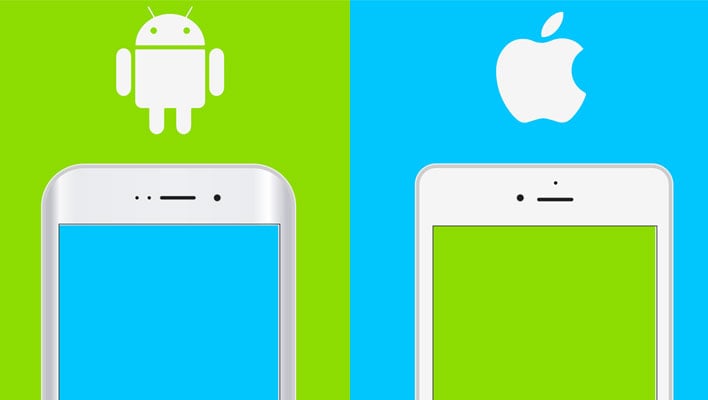Google Calls Myth On Study Claiming Android Collects 20x More User Data Than iOS

We know both Android and iOS collect certain user data and beam it back to each one's respective mothe ship, some of which is necessary for the continued operation of a smartphone, and other a result of privacy opt-ins. But does one or the other go overboard? A new study would have you believe "Google collects around 20 times more handset data than Apple." Google's reply? Get out of here with that nonsense (we're paraphrasing—more on that in a moment).
Like it or not, some level of data collection is simply required for today's high tech handsets, in order for features like GPS, receiving calls and text messages, and other core functionality to work. The question, however, is how much data Android and iOS phones actually collect, especially with both Google and Apple pitching user privacy as being important.
Douglas J. Leith, a professor from the School of Computer Science and Statistics at Trinity College in Dublin, Ireland, conducted what he claims is the "first systematic study" (PDF) comparing data sharing by Android and iOS. In that study, he says that even minimally configured handsets based on either OS sends data back to Google and Apple every 4.5 minutes on average.
The study also notes that Android and iOS transmit telemetry even when a user explicitly opts out, but that Google is the worse offender, collecting a "notably larger volume of handset data."
"During
the first 10 minutes of startup the Pixel handset sends around 1MB of data is sent to Google compared with the iPhone sending around 42KB of data to Apple. When the handsets are sitting idle the Pixel sends roughly 1MB of data to Google every 12 hours compared with the iPhone sending 52KB to Apple i.e., Google collects around 20 times more handset data than Apple," the study states.
That sounds damning, but there are some notable caveats. One is the fact that he compared the data collection from a jailbroken iPhone 8 running an older version of iOS (13.6.1) against a rooted Pixel 2 handset running Android 10.
The bigger caveat, however, is Google's claim that the study's methodology is flawed. Here is Google's full statement on the matter...
We identified flaws in the researcher's methodology for measuring data volume and disagree with the paper’s claims that an Android device shares 20 times more data than an iPhone. According to our research, these findings are off by an order of magnitude, and we shared our methodology concerns with the researcher before publication.
This research largely outlines how smartphones work. Modern cars regularly send basic data about vehicle components, their safety status and service schedules to car manufacturers, and mobile phones work in very similar ways. This report details those communications, which help ensure that iOS or Android software is up to date, services are working as intended, and that the phone is secure and running efficiently.
Google also contends that the study did not take into account UDP/QUIC traffic and other types of data on the iPhone handset, which further skewed the comparison. In addition, Google says users are not able to opt out of telemetry data, because it's needed in order to keep Android handsets patched and updated.
Apple agreed to an extent, telling Arstechnica that the report gets certain things wrong as well. So what we have here is a case of both companies disputing the methodology of a study, even though the study clearly favors one over the other.

